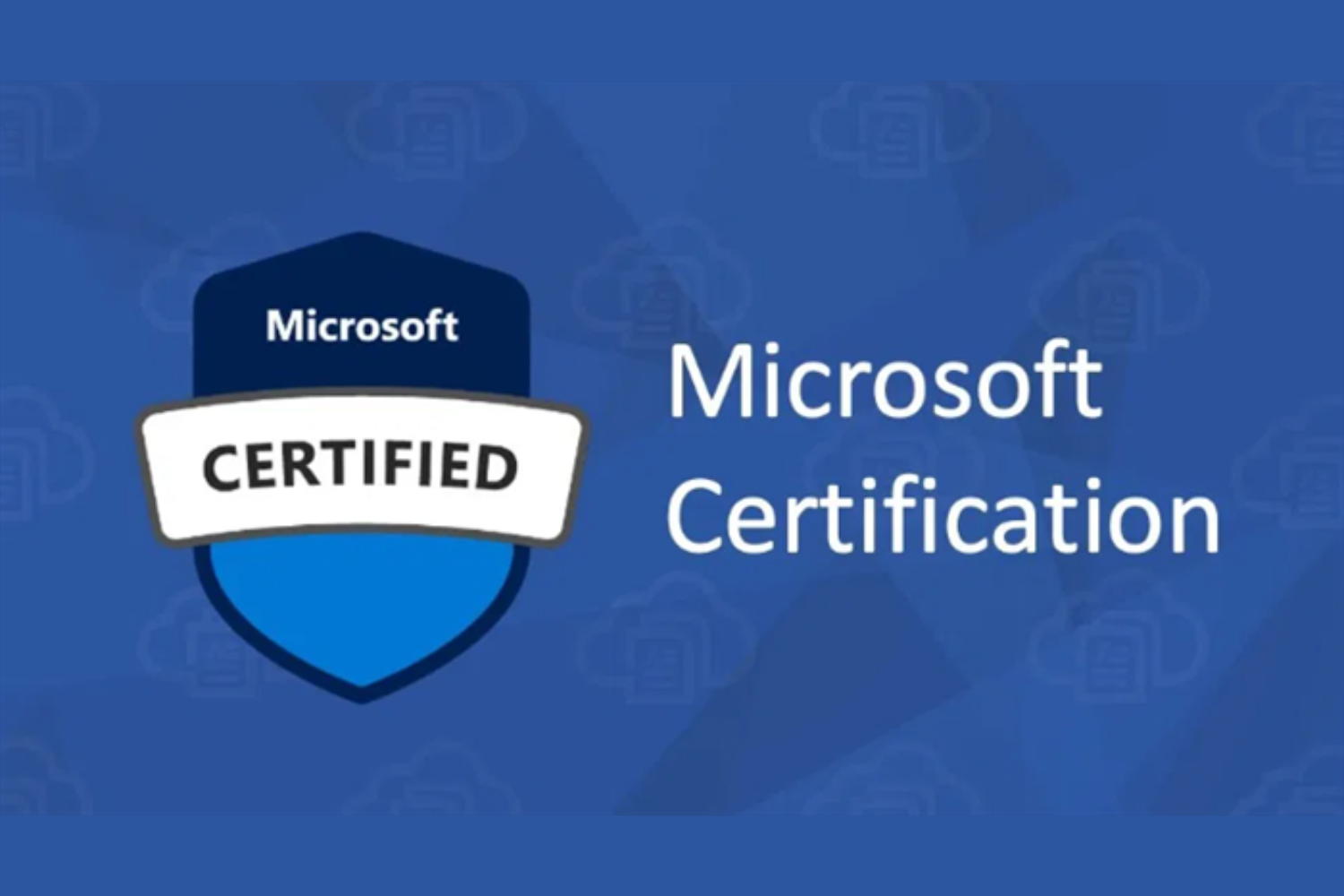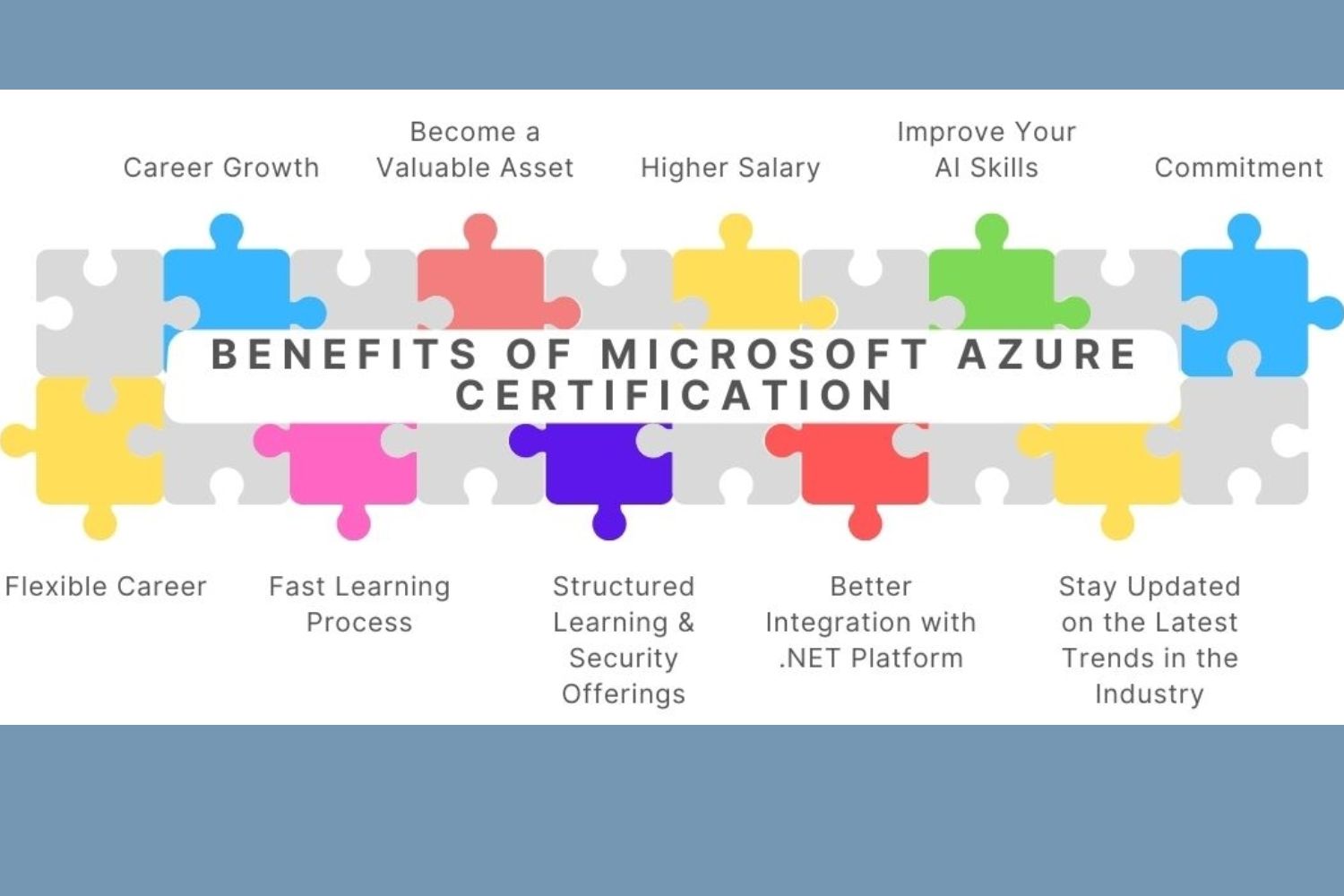
Microsoft Azure Cloud Certification
Certification in Microsoft Azure Cloud Computing refers to the process of validating an individual’s or organization’s knowledge and skills in utilizing Microsoft Azure, a popular cloud computing platform offered by Microsoft. Azure certifications are designed to assess proficiency in various aspects of cloud computing, including but not limited to cloud architecture, development, administration, security, and data management within the Azure environment. These certifications serve as a formal recognition of one’s expertise and can be essential for professionals and organizations looking to demonstrate their capabilities in Azure-based services and solutions. Microsoft offers a range of Azure certifications, each catering to different roles and skill levels, such as Azure Fundamentals, Azure Administrator, Azure Developer, and Azure Solutions Architect, among others. Achieving these certifications signifies a level of competence that can be valuable in pursuing a career in cloud computing, as well as for businesses aiming to build and maintain robust, secure, and efficient cloud infrastructures in the Azure ecosystem.
FUNDAMENTALS OF CERTIFICATION IN MICROSOFT AZURE CLOUD COMPUTING:
1. Diverse Paths: Azure offers various certification paths, catering to different roles and expertise levels, such as administrators, developers, architects, and more.
2. Exam-Based Validation: Certification is achieved by passing specific Azure-related exams, which assess knowledge and practical skills in relevant domains.
3. Official Study Materials: Microsoft provides official study materials, practice exams, and online courses to help candidates prepare for exams.
4. Credential Award: Passing the required exams results in the award of a certification, demonstrating proficiency in Azure.
5. Career Advancement: Azure certifications enhance career opportunities, job prospects, and earning potential for certified professionals.
6. Organizational Benefits: Businesses can leverage Azure-certified staff to design, implement, and manage Azure solutions effectively.
7. Ongoing Learning: Staying updated with Azure developments is crucial, with some certifications requiring periodic recertification.
8. Recognition and Credibility: Azure certifications offer recognition and credibility in the cloud computing industry, showcasing expertise in Azure services and solutions.
TYPES OF CERTIFICATIONS IN MICROSOFT AZURE CLOUD COMPUTING:
1. Azure Fundamentals: Entry-level certification validating basic knowledge of Azure services and cloud concepts.
2. Azure Administrator: Demonstrates expertise in managing Azure resources, infrastructure, and services.
3. Azure Developer: Certifies proficiency in developing applications and solutions on the Azure platform.
4. Azure Solutions Architect: Validates skills in designing complex, scalable Azure solutions and architectures.

5. Azure Security Engineer: Focuses on securing Azure environments and data, safeguarding against threats.
6. Azure AI Engineer: Demonstrates AI and machine learning skills for Azure-based projects.
7. Azure Data Engineer: Certifies expertise in data storage, processing, and analytics in Azure.
8. Azure DevOps Engineer: Focuses on implementing Azure DevOps practices and tools for software development.
BENEFITS OF CERTIFICATIONS IN MICROSOFT AZURE CLOUD COMPUTING:
Career Advancement: Azure certifications enhance job prospects and open doors to higher-paying roles in cloud computing.
Credibility: Certifications demonstrate expertise and build trust with employers and clients in the Azure ecosystem.
Skill Validation: They validate practical skills and knowledge, ensuring proficiency in Azure services.

Competitive Edge: Certified professionals have a competitive advantage in a rapidly evolving cloud technology landscape.
Organizational Efficiency: Businesses benefit from certified staff who can design, deploy, and manage Azure solutions effectively.
Industry Recognition: Azure certifications are recognized globally, giving professionals a competitive edge in the job market.
Personal Development: Certification encourages ongoing learning and skill enhancement in cloud computing.
Networking Opportunities: Certified individuals gain access to a network of Azure experts and peers in the industry.
Job Roles of Certifications in Microsoft Azure Cloud Computing:
1. Azure Administrator
2. Azure Developer
3. Azure Solutions Architect
4. Azure Security Engineer
5. Azure AI Engineer
6. Azure Data Engineer
7. Azure DevOps Engineer
8. Azure IoT Developer
9. Azure Certified Trainer
Course Highlights/ Details:
1. Suited for students, fresher’s, professionals, and corporate employees
2. Live online classes
3. 4-month program
4. Certificate of completion
5. Decision Oriented Program of Analysis
6. Live Classes by highly experienced faculties
7. Hands-on experience with real-life case studies.
Salary:
Azure Administrators from SCODEEN Global have received packages ranging from ₹13 Lakhs to 35 lakhs per Annum.

CONCLUSION:
In conclusion, certifications in Microsoft Azure Cloud Computing are invaluable credentials that validate an individual’s or organization’s expertise in leveraging the Azure platform. These certifications offer numerous benefits, including enhanced career opportunities, industry recognition, and increased proficiency in cloud computing. They play a pivotal role in fostering personal and professional growth while enabling businesses to effectively harness the power of Azure services and solutions. As cloud technology continues to evolve, Azure certifications remain essential for staying competitive in the dynamic world of cloud computing.

